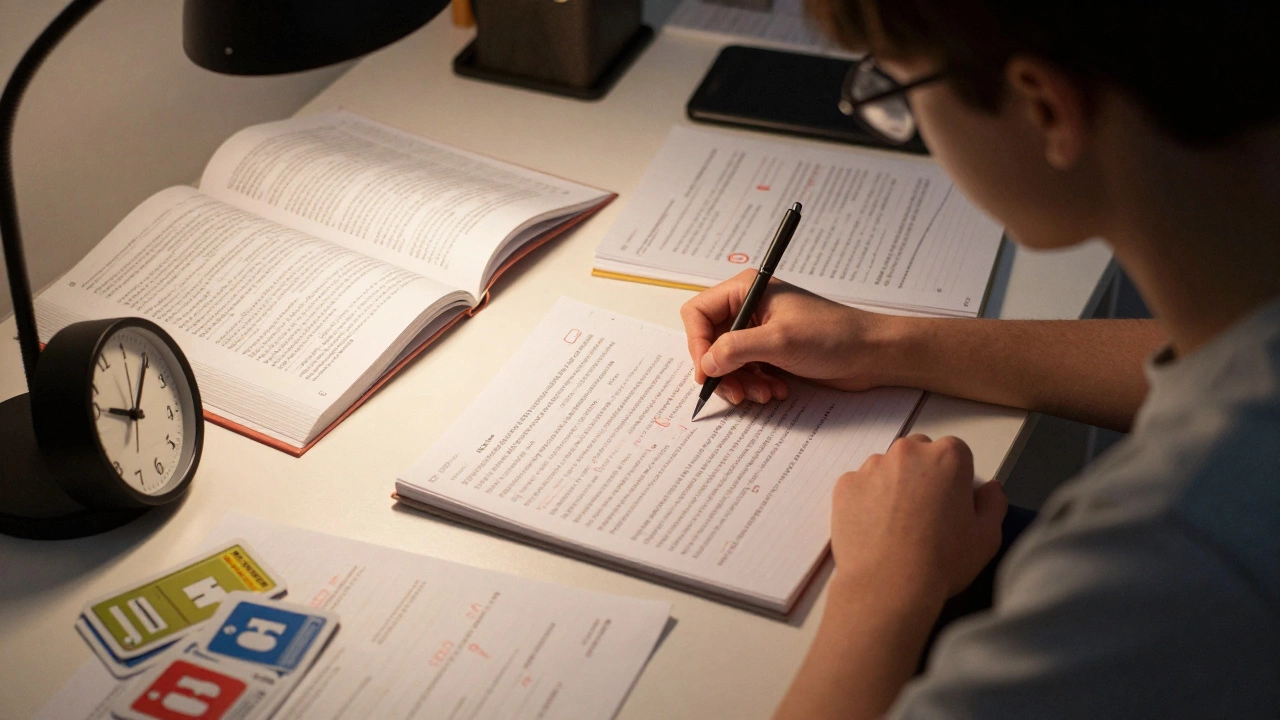GCSE Difficulty – What Makes These Exams Tough?
GCSEs are a big step for most students in the UK. The pressure of a fixed timetable, a lot of subjects and the need to hit certain grades can make the whole process feel overwhelming. You might wonder whether the exams are truly harder than other qualifications or if it’s just the way they’re set up. In this guide we break down the real reasons behind GCSE difficulty and give you simple ways to stay on top of the work.
Why GCSEs feel tough
One major factor is the breadth of material. Unlike A‑levels or university courses that let you focus on one subject area, GCSEs ask you to study up to ten different topics at once. That means you have to switch mindsets regularly, which can sap your concentration. Another issue is the way the exams are scored. Many papers use a tiered marking system, so a small mistake can drop you down a whole level. Finally, the timing of the exams – often in May and June – clashes with holidays and extracurricular activities, adding extra stress.
How to make the difficulty manageable
Start with a realistic study schedule. Break each subject into bite‑size chunks and assign a specific time slot each week. Using a simple planner or a free app keeps you from cramming everything the night before. Next, practice with past papers. Seeing the exact format of questions helps you spot patterns and reduces surprise on the day. When you review your answers, focus on the marking scheme – it shows exactly what examiners look for. Finally, mix active recall with short quizzes; this technique boosts memory far more than rereading notes.
Use free resources that match the GCSE syllabus. Websites like BBC Bitesize, Seneca Learning and the official exam board sites give concise videos, interactive questions and clear explanations. Join a study group – either in person or on a forum – so you can ask questions and teach each other. Teaching a concept is one of the fastest ways to notice any gaps in your understanding. If you’re still stuck, ask your teacher for extra worksheets or a quick one‑to‑one session; most teachers are happy to help when you show effort.
On the day of the exam, the right mindset can make a big difference. Arrive early, bring only the allowed materials, and read each question carefully before answering. If a question looks scary, skip it and come back later – you’ll keep momentum and avoid getting stuck. Take short breaths between sections to stay calm, and remember that a single tough question won’t ruin your entire paper if you’ve done the preparation work.
The key to handling GCSE difficulty is to treat the exam as a series of small, manageable tasks rather than one massive hurdle. Keep track of your progress, celebrate the tiny wins and adjust your plan when something isn’t working. By using a steady schedule, practicing past papers and tapping into free online tools, you’ll turn the perceived hardness into a set of achievable steps. Remember, most students feel the same pressure – you’re not alone, and with the right approach you can boost your grades without burning out.







